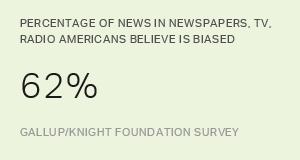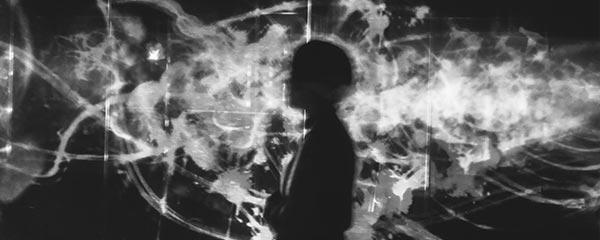WASHINGTON, D.C. -- The decline over the past decade in trust in the news media has been well-documented. The news media is arguably the most important institution for keeping citizens informed in a democracy. A new report, part of the Knight Foundation's Trust, Media and Democracy Initiative, relied on a variety of research approaches to assess why people trust or distrust media, and how trust might be restored.
The research, using open-ended questions, closed-ended importance ratings and an experiment asking participants to choose between competing news organization profiles, finds:
- Most U.S. adults, including more than nine in 10 Republicans, say they have lost trust in the news media in recent years. At the same time, 69% of those who have lost trust say that trust can be restored.
- Asked to describe in their own words why they trust or do not trust certain news organizations, Americans' responses largely center on matters of accuracy or bias. Relatively few mention a news organization's partisan or ideological leaning as a factor.
- Accuracy and bias also rank among the most important factors when respondents rate the importance of each of 35 potential indicators of media trust.
- Transparency also emerges as an important factor in the closed-ended ratings of factors that influence trust: 71% say a commitment to transparency is very important, and similar percentages say the same about an organization providing fact-checking resources, as well as providing links to research and facts that back up its reporting.
- An experimental approach not only reinforced the importance of accuracy, bias and transparency, but also revealed a complex relationship between partisanship and media trust. Both Republicans and Democrats were less likely to trust news sources with a partisan reputation that opposes their own. However, they did not express much greater trust in news sources that have a reputation for a partisan leaning consistent with their own.
For more information on Americans' opinions on trust in the media, .
║┌┴¤═° and Knight Foundation acknowledge support for this research provided by the Ford Foundation, the Bill & Melinda Gates Foundation and the Open Society Foundations.




